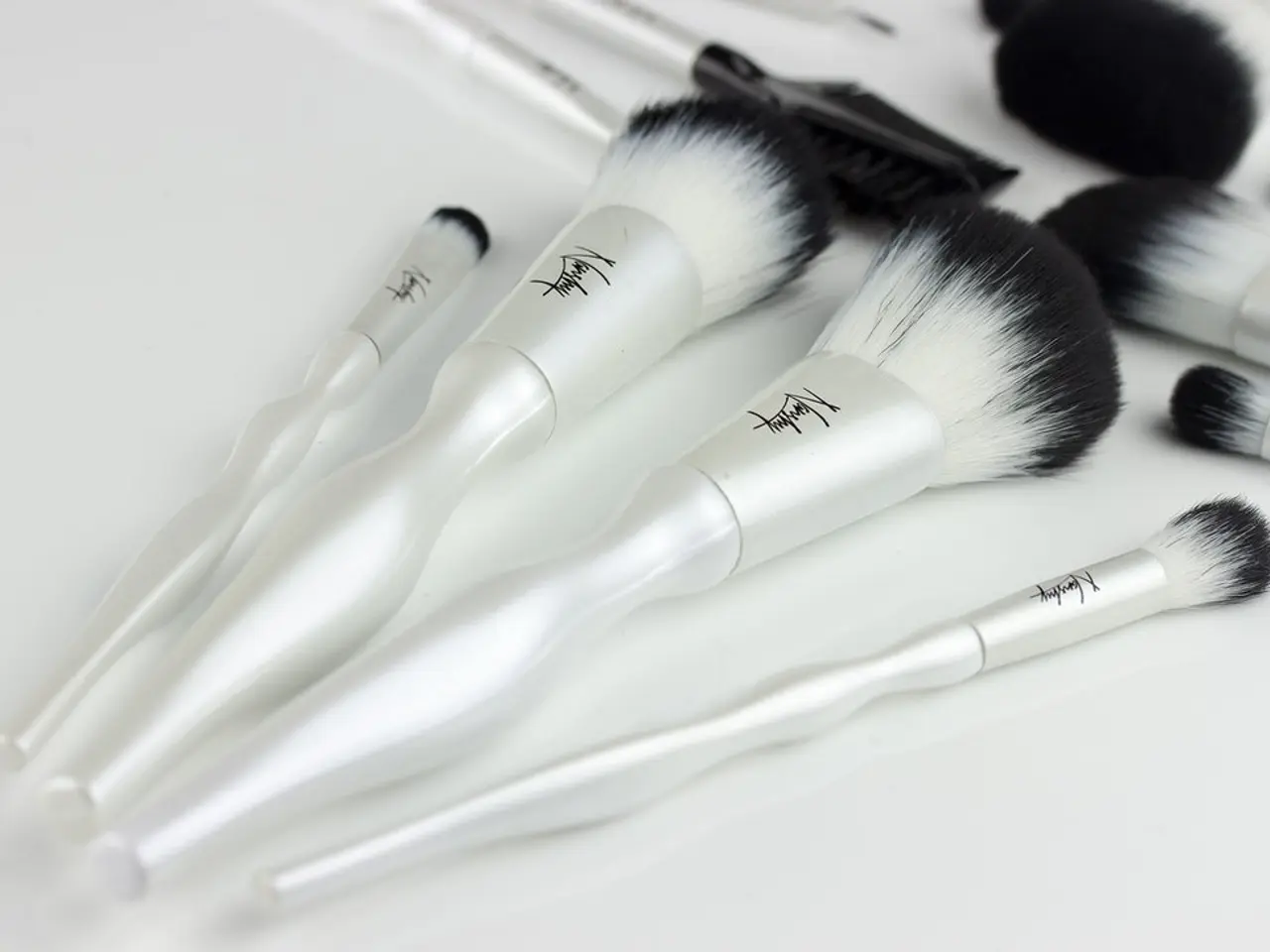Showcasing transformative results through before-and-after images in cosmetic procedure promotions
In Germany, advertising for minimally invasive cosmetic treatments such as Botox or hyaluronic acid injections is now strictly regulated. Under the German Medicinal Products Advertising Act (HWG), the use of before-and-after images for these cosmetic procedures is banned to prevent misleading advertising.
This law, which also regulates advertising for non-essential surgical and cosmetic procedures, prohibits the use of comparative depictions of a patient's physical state or appearance before and after treatment in public advertising.
Recent court rulings have confirmed this stance, with the German Federal Court reviewing the issue in a case involving a company advertising such treatments with before-and-after photos online and on social media. The court's preliminary assessment goes "strongly in the direction of the court of appeal," as confirmed by the Higher Regional Court of Hamm, which ordered the cessation of advertising practices that use such images[1][5].
The case in question involves the company Aesthetify, run by doctors and influencers "Dr. Rick" and "Dr. Nick." Aesthetify has stopped using before-and-after pictures to advertise beauty treatments following the court's decision.
The North Rhine-Westphalia consumer center is suing Aesthetify for violating the Medicinal Products Advertising Act, alleging that the violation occurred through the use of before-and-after pictures to advertise beauty treatments on Aesthetify's website and Instagram[2].
The risks associated with these treatments include swellings, bruises, infections, allergic reactions, and emboli. The court classified minimally invasive treatments as operative plastic and reconstructive surgical interventions, which are subject to strict advertising rules in German law[3].
Lawyer Punsmann, who represents the consumer center, is optimistic about the decision favoring the center but sees little reason to breathe a sigh of relief due to the large and competitive market for beauty interventions[6]. He expects to have more topics to take action against unauthorized advertising for beauty treatments in the future.
The conference of consumer protection ministers decided in May to further restrict advertising for beauty operations[7]. The two Aesthetify founders, "Dr. Rick" and "Dr. Nick," criticized the comparison of the risks of the fillers they offered to those of plastic and reconstructive surgeries, arguing that minimally invasive treatments like Botox or hyaluronic acid injection do not fall under the legal ban on comparative pictures because they have a "completely different risk profile"[4].
In summary, businesses and practitioners in Germany must avoid using before-and-after photos when advertising these cosmetic treatments publicly to comply with the law. These interventions may not be advertised by comparative representation of the physical condition or appearance before and after the intervention, outside of specialist circles.
References: [1] https://www.jurist.de/news/2022/09/german-court-rules-against-before-and-after-pictures-in-cosmetic-surgery-advertising/ [2] https://www.wdr.de/nachrichten/nrw/aesthetify-botox-werbung-vor-gericht-100.html [3] https://www.sueddeutsche.de/wirtschaft/aesthetify-botox-werbung-vor-gericht-1.5909937 [4] https://www.tagesspiegel.de/berlin/botox-werbung-aesthetify-muss-vor-gericht-verteidigen/27248112.html [5] https://www.spiegel.de/wirtschaft/soziales/botox-werbung-verbot-aesthetify-muss-vor-gericht-verteidigen-a-50595420.html [6] https://www.wdr.de/nachrichten/nrw/aesthetify-botox-werbung-vor-gericht-100.html [7] https://www.wirtschaftswoche.de/politik/verbraucherschutz-beauty-operatoren-durfen-kurz-vor-dem-einsatz-werben-100009104/ [8] https://www.wdr.de/nachrichten/nrw/aesthetify-botox-werbung-vor-gericht-100.html
- Strict regulations in Germany not only prohibit the advertisement of non-essential surgical and cosmetic procedures with comparative depictions of a patient's physical state or appearance before and after treatment, but also extend to medical-condition related news, health-and-wellness, and science sectors, as displayed in the court case against Aesthetify.
- Further restrictions on advertising for beauty operations, as decided by the conference of consumer protection ministers, may influence the way news agencies, scientific communities, and health-and-wellness providers present information related to medical-conditions and treatments, such as Botox or hyaluronic acid injections, to avoid misleading the public.




